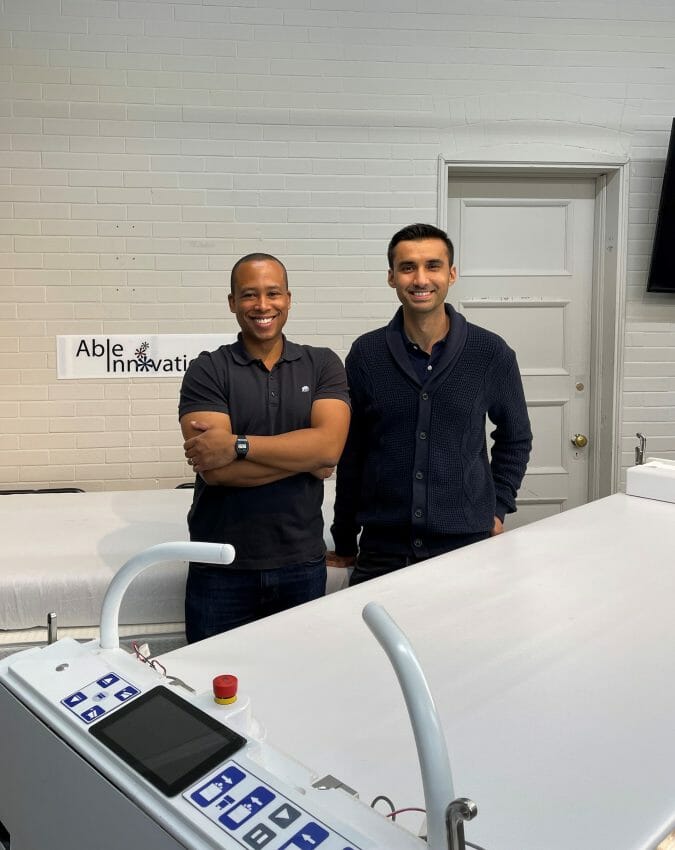Able Innovations, a Toronto-based robotic medical device start-up, is garnering significant support for its revolutionary ALTA Platform™ with an announcement of a total raise of USD $6MM.
This represents previously unannounced venture capital and grant funding, including USD $2.5MM in non-dilutive funding.
Able Innovations is using robotics to transform processes for healthcare staff by incorporating safety and dignity into a routine procedure that affects providers and patients.
The ALTA Platform automates the demanding task of patient transfer: moving a patient from one surface to another — e.g.: from bed to stretcher. Such transfers occur frequently and require 2 or more staff to exert back-breaking effort. In a post-pandemic system that is seeing nurses burn out and facilities short-staffed, ALTA enables workers to do more with less.
Able Innovations’ founders Jayiesh Singh and Philip Chang began developing ALTA in 2018, drawing from Jay’s experience volunteering in long-term care, and Philip’s struggles with transfer as a patient himself.
“The intense effort required in patient transfer under the current standard of care is not sustainable,” says Able CEO Jayiesh Singh. “The pandemic has widened cracks in the healthcare system, and patient transfer is one of them.”
Able’s unique solution has resulted in partnerships with leading Canadian and American systems including the U.S. Veterans Health Administration (VHA), Toronto’s University Health Network (UHN), and Ottawa’s Élisabeth Bruyère Hospital.
“Able is redefining values related to patient transfers,” says Dr. Gaurav Puri, Chief of Emergency at Southlake Regional Hospital. “Able has demonstrated its commitment to a device that transfers patients safely, efficiently, and with dignity, while minimizing injuries to staff.”
Able Innovations gratefully acknowledges support of crucial investors and funders including:
Champion physicians Dr. Gaurav Puri and Dr. Andrew Vellathottam
NorthSpring Capital Partners
University of Waterloo’s incubator, Velocity, and its Health Tech Fund
Ontario Centre of Innovation’s Market Readiness Fund
Federal and provincial government grants
